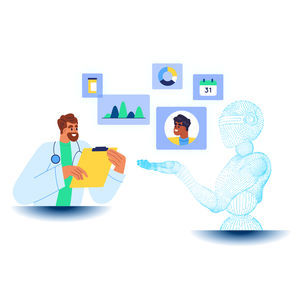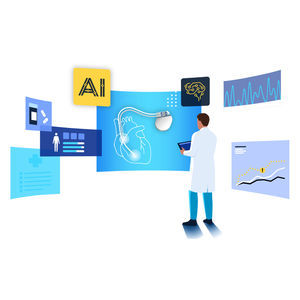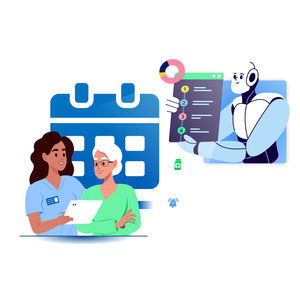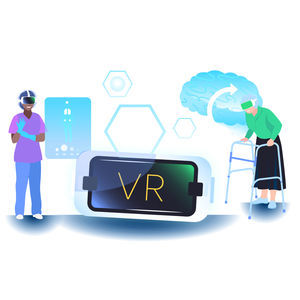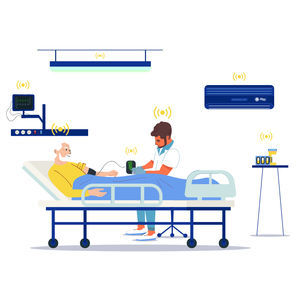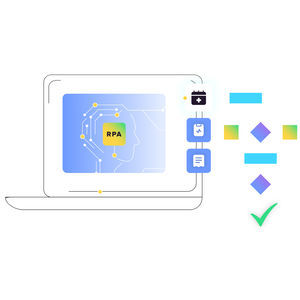
- Products
- Catalogs
- News & Trends
- Exhibitions
Medical cloud computing
Add to favorites
Compare this product
fo_shop_gate_exact_title
Characteristics
- Applications
- medical
Description
Cloud computing in healthcare helps care providers lower the IT and infrastructure costs, improve data security and compliance, and gain easier access to the advanced technologies such as big data analytics, artificial intelligence (AI), and the Internet of Things (IoT).
Cloud Adoption in Healthcare
The global market of cloud computing in healthcare, valued at $54.50 billion in 2024, is expected to grow at a CAGR of 16.80%, reaching $257.53 billion by 2034.
According to DuploCloud, 70% of healthcare businesses have already adopted cloud solutions. However, most of them use only cloud infrastructure and have yet to realize the full potential of cloud technology beyond the simple hosting of applications.
The key drivers of the growing cloud adoption in the healthcare industry are:
The cost-efficiency, enhanced data storage, flexibility, and scalability enabled by cloud computing in the healthcare industry.
The increased adoption of EHR, e-prescribing, telehealth, mHealth, and other cloud solutions for the healthcare industry.
The rising use of big data analytics, AI, IoT, and other emerging technologies that are enabled by cloud services.
The main concern related to cloud computing for healthcare is data security, as trusting PHI storage to third parties introduces additional risks of data breaches and non-compliance.
Applications of Cloud in Healthcare
HIPAA-compliant clouds such as Microsoft Azure, Microsoft Cloud for Healthcare, AWS, and Google Cloud provide a secure infrastructure and PaaS services to build healthcare cloud applications of any complexity.
Related Searches
- Analysis medical software
- Radiology software
- Viewer software
- Control software
- Scheduling software
- Monitoring software
- Diagnostic medical software
- Hospital software
- Online software
- Treatment software
- Tracking software
- AI software
- Artificial intelligence software
- Surgical software
- Education software
- Web-based software
- Data analysis software
- Cardiac software
- Image analysis software
- EHR software
*Prices are pre-tax. They exclude delivery charges and customs duties and do not include additional charges for installation or activation options. Prices are indicative only and may vary by country, with changes to the cost of raw materials and exchange rates.


